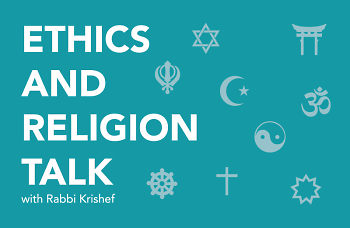The Reverend Colleen Squires, minister at All Souls Community Church of West Michigan, a Unitarian Universalist Congregation, responds:
“The Universalist part of our faith believes in universal salvation, no one would ever be denied access to heaven for any reason. As for the comment about suicide. We need to remove the stigma around suicide. Having worked in a hospital setting for many years I have come to understand suicide to be a life-threatening illness. A person suffering from suicidal tendencies needs our support, love and compassion. The person is suffering. My understanding of God is of a loving God who would unequivocally welcome those who are suffering. Personally, I do not believe in sin, but I would question those who would shame those in our society who are suffering.”
Rev. Ray Lanning, a retired minister of the Reformed Presbyterian Church of North America, responds:
“Presbyterianism defines sin as ‘the transgression of the law of God’ (I John 3:4), and teaches that ‘every sin deserveth God’s wrath and curse, both in this life and that which is to come’ (Shorter Catechism, Q. 84). But we also confess that ‘all transgressions of the law of God are not equally heinous; but some sins in themselves, and by reason of several aggravations, are more heinous in the sight of God than others’ (Larger Catechism, Q. 150). For example, the sins of a Christian are more heinous or blameworthy than other people’s sins, because the Christian sins against knowledge and grace. We have been taught what God’s revealed will is, and we have received grace to do what God requires in His law.
“But we also confess that Christ has ‘fully satisfied’ for all our sins, past, present, and future. His atonement for sin, and God’s free gift of justification from the guilt of all sin, are both comprehensive and irrevocable. The only ‘mortal' or fatal sin is unbelief, that is, refusing to believe or casting away faith in promises of the gospel. Suicide is heinous sin, more heinous than many other sins; those tempted to commit suicide should seek the counsel and help of other Christians to overcome this temptation. But suicide does not negate God’s promise of salvation, and does not exclude the believer from the resurrection to eternal life through our Lord Jesus Christ.”
Chris Curia, local youth director and Master of Divinity candidate at The Seattle School of Theology & Psychology, responds:
“First, let’s redefine resurrection. There is good reason to believe that Jesus was far more concerned with people believing in the possibility of a new life for this life, not just one for the age to come. The scandal of resurrection, therefore, is that this new life is possible for everybody, everywhere, and always. The privilege of divine love is freely given and lasts forever.
“If we reframe resurrection with this perspective, then the notion that a person, once rebirthed into this new life, cannot be separated from the love of God actually holds up. The goodness freely given is so not about us, nor is it contingent upon the ways we bring harm to ourselves and our world. Resurrection is embodiment taken to its eventual goal. The whole point is that through it, nothing good can ever die, no matter life’s demands.”
My response:
My tradition sees suicide through two lenses. First, it is wrong because of the sixth commandment, “Do not murder.” Against this, though, our assumption is that a person who kills themselves is suffering from some kind of clinical depression or other mental illness. A person cannot be fully culpable for the crime of murder unless they have the capacity to understand that what they did is wrong. To add another layer of complexity, my traditional also sees a person’s death as a final moment of atonement.
One might argue that any terrible sins on that person’s conscience, even murder, are wiped clean at the moment of death. Such a person might die having considered and regretted all past mistakes and having done their best to repay the mistakes, submitted to the appropriate punishment for the worst of them, and having vowed never to repeat them. In that case, it seems reasonable that one’s death atone for all of the things that one could have done better, and that the soul ought to enjoy the world to come and the resurrection of the messianic era.
However, what about a person who did not regret their sins? One who died as an unrepentant murderer? To use an extreme example, what about Hitler? To my mind, it seems reasonable that death should not repent for a life of evil for the unremorseful.
So we return to suicide. I’ll assume that any person who successfully ends his or her own life did not fully understand the nature of the sin, and was not morally culpable. And therefore such a person’s death would be their atonement, and they would go on to the afterlife and resurrection.
This column answers questions of Ethics and Religion by submitting them to a multi-faith panel of spiritual leaders in the Grand Rapids area. We’d love to hear about the ordinary ethical questions that come up ina the course of your day as well as any questions of religion that you’ve wondered about. Tell us how you resolved an ethical dilemma and see how members of the Ethics and Religion Talk panel would have handled the same situation. Please send your questions to [email protected].
The Rapidian, a program of the 501(c)3 nonprofit Community Media Center, relies on the community’s support to help cover the cost of training reporters and publishing content.
We need your help.
If each of our readers and content creators who values this community platform help support its creation and maintenance, The Rapidian can continue to educate and facilitate a conversation around issues for years to come.
Please support The Rapidian and make a contribution today.
